April 16, 2025 | 22:26 GMT +7
April 16, 2025 | 22:26 GMT +7
Hotline: 0913.378.918
April 16, 2025 | 22:26 GMT +7
Hotline: 0913.378.918
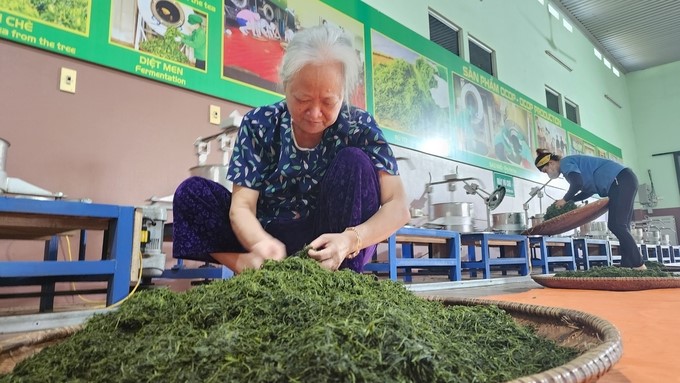
Mrs. Pham Thi Yen is over 70 years old but still keeps the habit of making tea every day. Photo: Van Viet.
The old woman with snow-white hair sat and quickly typed on the computer, checking orders and invoices, "closing" each customer. In addition to her rare age, Mrs. Pham Thi Yen still keeps the habit of drinking at least five cups of tea with the whole family every morning. Those are the kinds of teas that her son's cooperative sells to customers. Although they are Dinh tea, the most expensive tea, Non Tom tea, or teas marinated with lotus flowers and jasmine flowers, Mrs. Yen and her descendants still carefully sip each cup to ensure the right product at the right price.
"Nowadays, with the development of e-commerce, regular customers also reduce their frequency of coming here in each harvest season. With technological applications, there is an appearance of vacuum-sealed tea with more beautiful and glossy designs. Back in our day, even the quilt covers sometimes had to be brought out to store tea," said Mrs. Yen.
The plastic bags for tea sales are kept as a treasure by Mrs. Yen as well as other tea-making households. Otherwise, there is nothing to store or bring to the market to sell. The bags followed her year after year. Every house is like that. Plastic tea bags, supporting children’s education. Only when the tea in the plastic bags in the market is sold out will the mother bring the children a gift or a piece of cake.
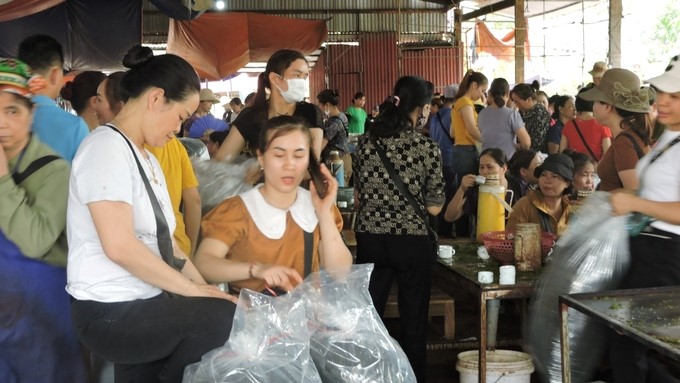
The tea market day is crowded with buyers and sellers in Thai Nguyen. Photo: Toan Nguyen.
In famous tea areas, there are always "tea-making artisans" due to their contributions in the fields of tea cultivation, tea drying, and passing on knowledge and experience to the next generation. However, at Thai Nguyen's tea markets, there are always some people who are called "tea-trading artisans" by both tea sellers and small traders. They are truly masters, knowing every corner of tea.
They are long-time tea traders, always present at all large tea markets throughout Thai Nguyen province, from Phuc Triu market, Phuc Xuan (Thai Nguyen city) to Phuc Thuan market (Pho Yen city), La Bang and Minh Tien markets (Dai Tu district), etc. All the tea sellers really want to sell to these “artisans”, because they always buy in very large quantities at a more reasonable price.
The first "tea-trading artisan" mentioned is Mrs. Hop (72 years old), residing in Hung Son town, Dai Tu district, and recognized as the longest and largest tea trader in Thai Nguyen province. It is easy to recognize Mrs. Hop, who has a bold figure and is always accompanied by a man (both a driver and a loader). When going to tea markets, she only carries a phone and a notebook in her hand, rarely carrying money.
One day, Mrs. Hop buys 3–4 tons of dry tea with a value of up to VND 600–700 million. Her family has eight coaches running from Dai Tu district to the South. Every day, her family transports tons of tea to hundreds of the family’s agents and focal points in the provinces of Binh Duong, Binh Phuoc, Dong Nai, Ho Chi Minh City, etc.
Mrs. Hop has been a tea trader since she was 15 years old, with nearly 60 years of experience up to now. In the subsidy period, tea trading was banned, but people still found ways to transport tea by hiding it in the pockets of clothes, in the body, and in the crotch. Up until now, Mrs. Hop has built customers in the southern provinces.
"To be honest with you, it's very hard for farmers to make tea, and the price is cheap now, so when I buy, I will pay more freely so that they won't lose. In some tea markets in cities such as Phuc Xuan and Phuc Triu markets (in the Tan Cuong tea region), I confirm that people here make the most standard tea in Thai Nguyen province; there is no intentional situation of putting colorings or monosodium glutamate mixed into the tea as elsewhere," shared Mrs.Hop.
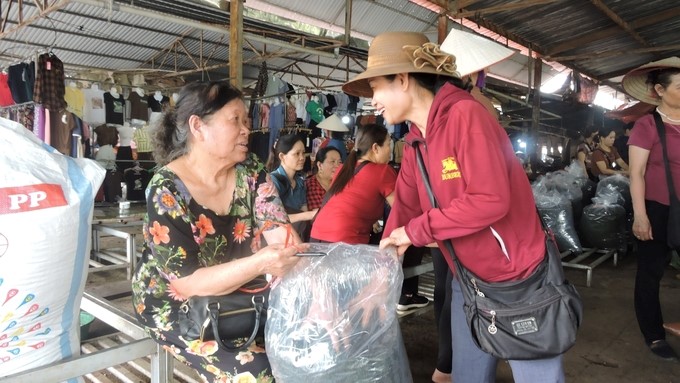
Mrs. Hop (on the left) has been a tea trader since she was 15 years old. She now has nearly 60 years of experience as a tea trader and is known as a "tea-trading artisan". Photo: Toan Nguyen.
Tea connoisseurs do not need a teapot to go to the market. So are the sellers. In the early morning, when the morning dew hadn't completely dissipated, Phuc Xuan tea market was already bustling with people's voices.
In the market, there are always dozens of wooden tables for buyers and sellers. Mrs. Doan, 72 years old, still keeps the habit of going to the market to sell tea at least once a week, even though her son is a famous tea businessman in Tan Cuong. As for Mrs. Doan, going to the tea market was like a joy, like a sense of nostalgia.
A tea seller like Mrs. Doan at Phuc Xuan Market always carries many bags of tea and dozens of cups. Buyers will pick tea from each bag, depending on the type of expensive or cheap tea, and use their fingers to gently pluck each tea wing in the palm of their other hand. That is to see the degree of shrinking, the "moldiness" of the tea wings; connoisseurs call it "image". Next, the buyer will use his nose to smell, which is the "fragrance" assessment.
Put a pinch of tea in a cup, and boiling water is poured in. The profession will not use freshly boiled water but will let it cool a bit to reach about 85–90 degrees and then pour it into the cup. Take another cup to put on top; about half a minute later, they will transfer the water from one cup to the other to test. After drinking it all, they looked at the tea residue. That's the end of a process to see the "image and fragrance" of tea.
Mixing with some fragrances and making mould so that the tea has an acrid taste when initially drunk and a "sweet aftertaste" after passing through the throat. So many stages and thousands of advertisements will be expressed in just a few steps by connoisseurs.
The cheapest type of tea here is usually sold for VND 200,000 /kg. This type is likely to come to sidewalk iced tea shops. There, it is most likely mixed with lower-quality teas from other regions to increase profits. But if you use Phuc Xuan's tea at a price of VND 200,000/kg, the taste will definitely be different. Mildly bitter, mildly sweet, and long-lastingly fragrant. Although not obvious, those three tastes have become brands.
Tea residue in Phuc Xuan is also not wasted. It is not natural that people can freely try each bag of tea brought by the seller. At the end of the market, around 11 a.m., someone will go and buy tea residue. This residue is brought to dry, mixed with delicious tea bran (finished dust tea), and then re-dried and sold at a price of about 40,000 VND/kg. Therefore, people also call this "mummy tea".
Translated by Huyen Vu Thu
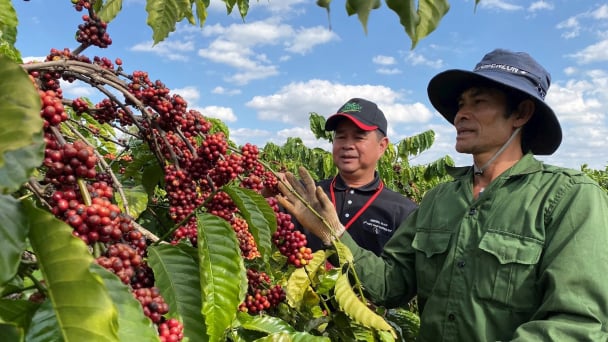
(VAN) Businesses emphasize fairness and equality when integrating social factors into their sustainable development strategies.
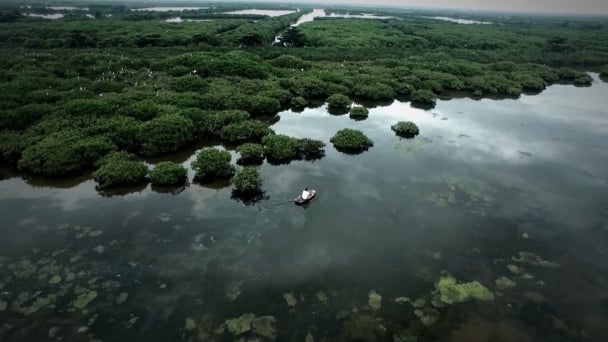
(VAN) French organizations and enterprises propose that Thai Binh province provide potential and long-term cooperation contents related to climate change response and green industrial development.
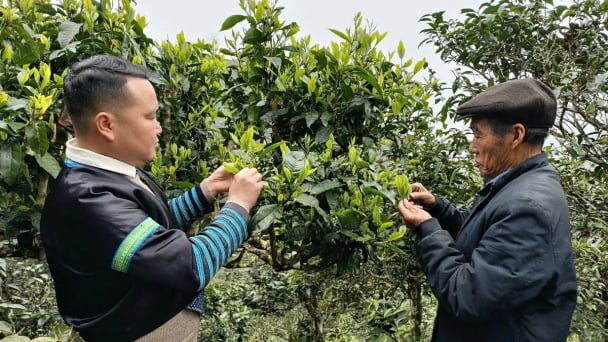
(VAN) Shan Tuyet tea is considered a 'heavenly treasure'. The H'mong people allow the tea to grow naturally, adhering to organic production principles, with the aim of exporting the product.
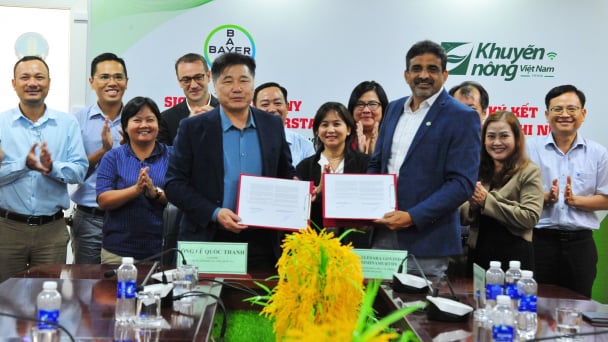
(VAN) Bayer Vietnam and the National Agricultural Extension Center have signed a partnership agreement to expand the development of effective and safe farming models for rice, durian, and coffee.
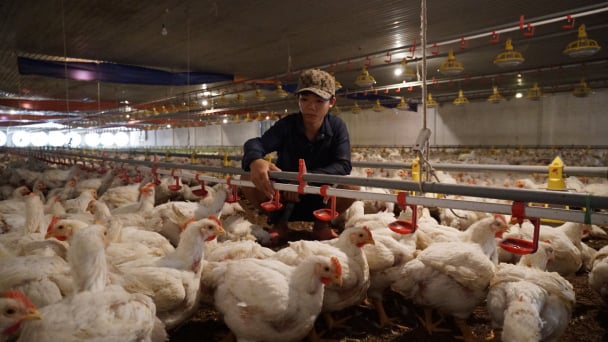
(VAN) Tay Ninh province possesses all the favorable conditions, from natural advantages to geographic location and social harmony, to drive economic development, particularly in attracting investment and advancing modern livestock farming.
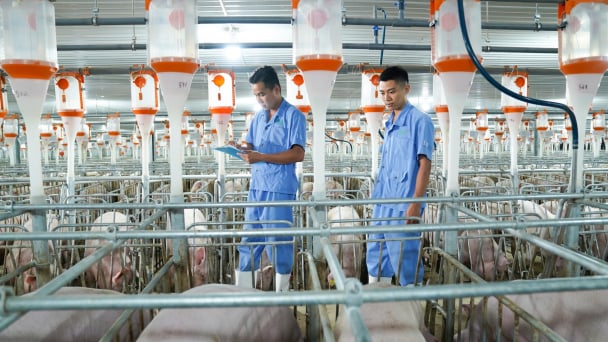
(VAN) Notably, every link in BAF's entire closed livestock value chain Feed - Farm - Food has received international certification.
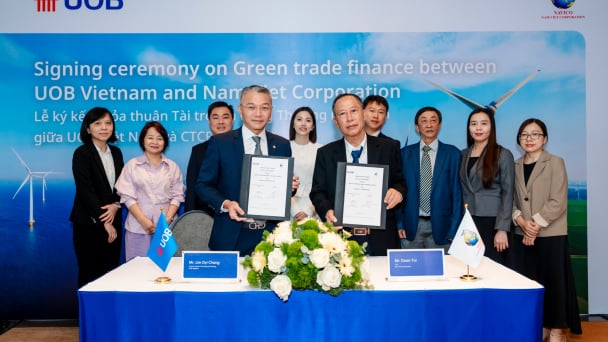
(VAN) UOB Vietnam has recently signed a green credit agreement with NAVICO to develop sustainable aquaculture that meets international standards.